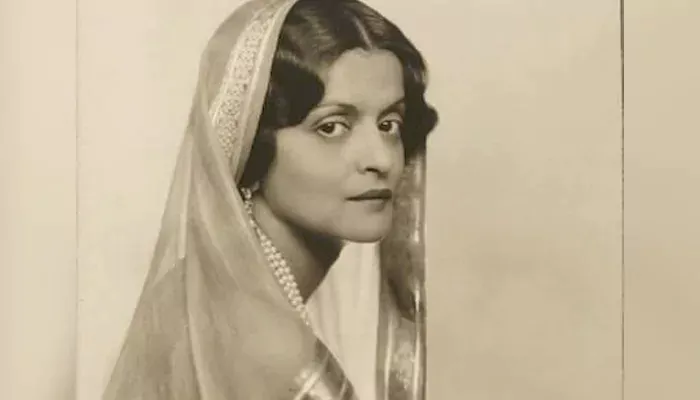
Know how a royal voice travelled from Punjab palaces to London’s airwaves!
When you think of Indian queens, what comes to mind? Velvet thrones, heirloom jewellery, maybe a sword or two. But a microphone? Not really. Unless you’re talking about Maharani Indira Devi of Kapurthala, a royal who didn’t just make headlines with her opulent life but broke boundaries by making airwaves her arena.
In the early 20th century, when Indian women’s voices were largely confined behind the purdah, Indira Devi’s words travelled all the way to the BBC Radio studios in London. Yes, you read that right. A queen from Punjab speaking on the same platform that broadcasted Churchill and the British monarchy!
Born in 1912, Indira Devi wasn’t a stereotypical royal. Daughter of Maharaja Gopal Narayan Singh of Bihar’s Bhagalpur, she married into the flamboyant royal family of Kapurthala, a princely state known for its French-inspired architecture, love of culture, and extravagant taste. But Indira had more on her mind than just tiaras and tea parties.

(Indira Devi in her childhood days)
With a razor-sharp intellect, global sensibility, and a flair for languages, she was way ahead of her time. And when the opportunity came to speak on BBC Radio during her stay in London, she didn’t just represent her kingdom, she represented Indian womanhood on a global stage.
Indira Devi’s radio addresses weren’t just chit-chat about palace life. She discussed art, culture, and women's empowerment. Her BBC features gave British listeners a glimpse of a modern, educated, articulate Indian woman—shattering stereotypes one sentence at a time.
At a time when India was still under British rule and the West viewed Indian women through a colonial lens, Maharani Indira Devi reshaped that narrative. She wasn't just a royal; she was a flamboyant storyteller, a cultural diplomat, and a quiet revolutionary.

During the Second World War, Maharani wasn’t just voicing stories, she was shaping narratives. Recruited as a political correspondent to none other than George Orwell for the BBC’s India team, she brought the corridors of power alive for Indian listeners. Her sharp commentary echoed from the House of Commons through the show ‘The Debate Continues’, making her a household name among politically aware Indians abroad. But she didn’t stop there. With her eloquence in Hindustani, she became a comforting voice to soldiers via ‘Hello Punjab’, a programme specially curated for the British Indian Army, keeping them connected to home. Teaming up with Narayana Menon, she also lent her charm to musical programmes on the Indian Service, blending politics with culture in a way only a queen could.
Can you imagine the contrast? One day attending soirées in Paris, the next rehearsing radio scripts under the dim lights of the BBC studio? Her life was a seamless fusion of royal refinement and rebellious spirit.

It wasn’t just her voice that won people over, it was her presence. She spoke in flawless English with the confidence of a stateswoman and the heart of a poet. Her broadcasts became symbolic: proof that Indian women could represent their heritage without being confined by it.
That’s the question, isn’t it? Maharani Indira Devi’s BBC stint was a milestone; not just for Indian royalty, but for women in media. Yet her story, like many incredible Indian women from the past, rarely makes it to history textbooks.
In the age of podcasts and YouTube, it’s time we give credit to those who were trending before trending was a thing.
Her palace in Kapurthala was inspired by Versailles and had an in-house orchestra; talk about living the audio dream!
She travelled widely across Europe, often giving interviews that blended tradition with modern thought.

She was also an accomplished writer and supported numerous women’s literacy initiatives in Punjab.
As India celebrates its modern voices in the form of entrepreneurs, influencers, and changemakers; it’s worth remembering the women who used their voices before it was fashionable. Indira Devi of Kapurthala didn’t just make a radio appearance. She made a statement.
So the next time you’re listening to your favourite podcast or a woman speak her mind on the airwaves, remember the queen who paved the way.